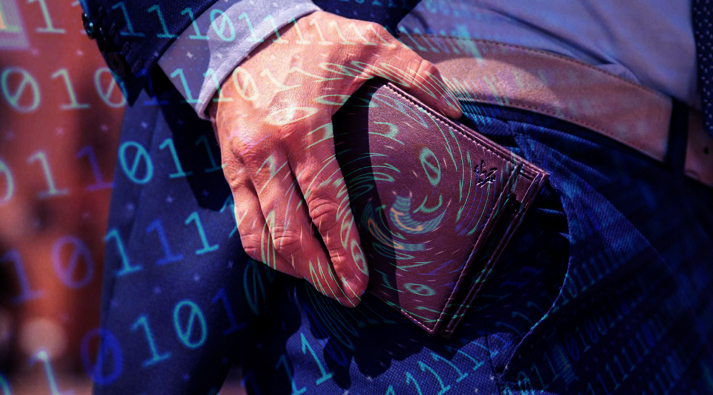
You would think someone with a valid legal case against someone else would happily answer any questions related to it - there's no possibility that simply answering them honestly would end up hurting the case... right?
To be clear - the people behind this lawsuit are aggressively seeking media attention.
Us, along with multiple other outlets have received regular updates on the case in the form of press releases from NY based lawyer Evan Spencer. Both these press release and the lawsuit itself seem to follow a format of initially sounding serious, citing dates and price movements, like it revolves around relatively simple math.
Then things slowly drift, and you find yourself reading 'unhinged' rants, seemingly as the author becomes and more consumed by negative emotions with each mention of the name 'Elon Musk'.
For example, the lawsuit begins with:
"Musk, together with SpaceX, Tesla, Inc., the Boring Company, the Dogecoin Foundation, and the "Doge Army," became de facto partners in a multi-billion-dollar racketeering enterprise which intentionally manipulated the market to drive the price of Dogecoin from $0.002 to $0.73 in two years, an increase of 36,000%. Subsequently, in May of 2022, Musk recklessly caused the price to drop 92% from $.073 to $0.05, an aggregate of nearly $86 billion, when his actions spawned the crypto-crash of 2021/2022."
I'll point out why much of this is misleading; for now, I'm simply showing how the lawsuit sounds like it could be legit...initially.
But once you're a few pages into the lawsuit, you find yourself reading rants that no longer involve Elon Musk...or Dogecoin.
Like they thought, "Our case is sounding a bit weak... I think we need to turn up the heat - ALL CRYPTO may be EVIL!".
Just like that, you're reading rants about a website that closed 9 years ago when the owners were arrested for selling drugs and other 'black market' goods using Bitcoin as the platform's currency. If you guessed what I'm talking about, you're probably correct - somehow, Silk Road is mentioned in this lawsuit happening nearly a decade later.
"The Silk Road fallout, supra, a now-defunct billion-dollar empire dedicated to the sale of illicit drugs using Bitcoin, further illustrates that crypto’s intended use as currency, in addition to its exploitation as an investment, merits further regulatory scrutiny."
Predictably, no effort was made to see if the 'further scrutiny' already exists - it does. To anyone in crypto, this tactic used to attack crypto is considered outdated and debunked for years - it takes a combination of someone misinformed and desperate to even attempt it.
The truth is so easy to find, I can only assume they never even looked...
In reality, about 2.1% of transactions in crypto are connected to something illegal. This is confirmed by the analytics firm that works with the FBI, translating blockchain data into actionable intelligence to catch these criminals, Chainalysis.
According to the UN, as much as 5% of ALL global currency is being used to facilitate something illegal, meaning Fiat currency, specifically paper cash, remains the preferred format of currency in the criminal underworld.
Ironically, they demonstrate an accurate understanding of the public ledger/blockchain behind every cryptocurrency, and how it gives anyone access to a lifelong record of every transaction that was made using that cryptocurrency. But then seem unable to guess why many criminals actually avoid crypto.
When answering questions is considered a risk...
Under what circumstances would the party making the accusations against another want to avoid answering questions? If you're the victim, completely innocent, and can clearly explain who victimized you and how they did it - then there is no question that could possibly lead to any other conclusion.
Refusing is a red flag (just my personal opinion, of course, it isn't a definitive sign that something shady is going on), but I cannot think of any time in my life when I was confident enough to accuse someone of something negative, but scared someone could ask a question that would result in my claims sounding invalid.
Here are the questions we asked the lawyer suing Elon Musk, and his excuse for not answering them...
It's worth noting that before the lawyer read them, he said he would have a response for me the following day. When the following day came, he said they could not answer questions. Specifically telling me:
"I am not at liberty to answer any of your direct questions at this time. After the case is fully pleaded and briefed with the district court, I would be happy to let you interview me and some of my clients.
However, until that time, I cannot compromise the rights and interests of my clients to appease the demands of the media."
Also worth noting, there were only 2 questions. The team came up with something like 10 legitimate things to ask, but in the end we all agreed that the validity of the case would be determined by these 2 factors.
Question #1:
Elon Musk first mentioned Dogecoin in a 2019 tweet. Anyone who bought it then is STILL up 2900% on their investment. Elon Musk has mentioned it occasionally ever since.
So let's go with the idea that your client truly admired Elon Musk, which is why Elon mentioning something was so persuasive. But if that was the case, the timeline is very off.
Your client could have lagged a full 20 months after Musk first mentioned Dogecoin, and if he bought some then, his profits would be over 500% still today.
But your client waited 2 years or more to act on Musk's endorsement.
Can you explain how Elon Musk's endorsement was both irresistible to your client, and at the same time, something they didn't get around to doing for nearly 2 years?
Question #2:
Has Elon Musk sold ANY Dogecoin? He said he hasn't.
There's been no mention of a mysterious wallet dumping massive amounts of Dogecoin, suspected to belong to Elon.
Not only does he claim to have never sold, he says he's bought more as the price declined.
Your lawsuit frames him as a scammer running a pyramid scheme, but if he's telling the truth, this would be the first time in history the mastermind behind the multi-million dollar scam forgot the most important part - to profit.
What is your evidence that Musk did indeed profit? Otherwise, his investment lost an even higher percentage as your client - this has never been said about the person at the top of a pyramid scheme before.
Why it really is this simple...
Because it appears that Elon's endorsement of Dogecoin was NOT so influential that those suing him felt compelled to buy some when they found out he was a fan. More like they saw/heard Elon was a fan of Dogecoin, reacted by doing literally nothing for an extended period of time, then nearly 2 years after Musk first spoke of it, bought some Dogecoin.
Now the only remaining claim revolves around the idea that Elon manipulated the price of Dogecoin for personal gain - but as far as anyone knows, he hasn't gained a penny.
If Elon is telling the truth, that he sold none, and even bought more as the price declined - the entire lawsuit becomes impossible to make sense of, none of Musk's actions fit their claims.
The lawyer representing those suing Musk did however agree to speak with us 'After the case is fully pleaded and briefed with the district court' - we may have all our answers by then, if not, we will take them up on the offer.
-----------
Author: Ross Davis
Silicon Valley Newsroom
GCP | Breaking Crypto News





